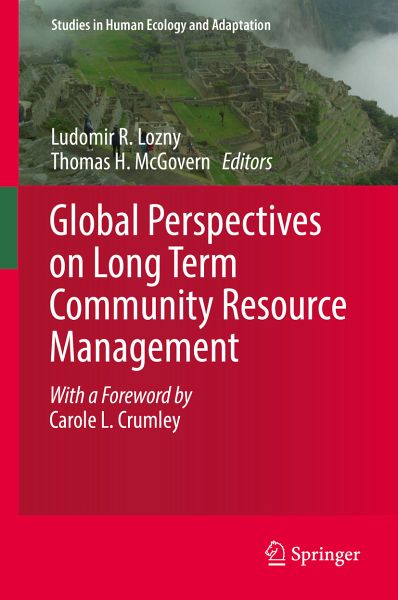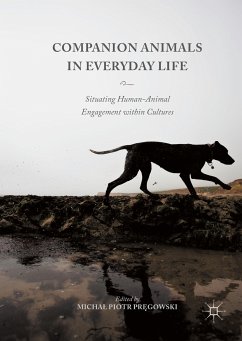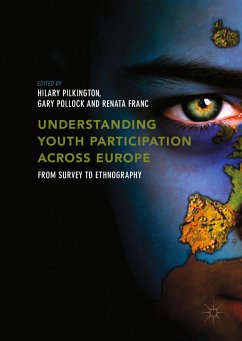
Global Perspectives on Long Term Community Resource Management (eBook, PDF)
Versandkostenfrei!
Sofort per Download lieferbar
72,95 €
inkl. MwSt.
Weitere Ausgaben:

PAYBACK Punkte
36 °P sammeln!
Communal-level resource management successes and failures comprise complex interactions that involve local, regional, and (increasingly) global scale political, economic, and environmental changes, shown to have recurring patterns and trajectories. The human past provides examples of long-term millennial and century-scale successes followed by undesired transitions ("collapse"), and rapid failure of collaborative management cooperation on the decadal scale. Management of scarce resources and common properties presents a critical challenge for planners attempting to avoid the "tragedy of the co...
Communal-level resource management successes and failures comprise complex interactions that involve local, regional, and (increasingly) global scale political, economic, and environmental changes, shown to have recurring patterns and trajectories. The human past provides examples of long-term millennial and century-scale successes followed by undesired transitions ("collapse"), and rapid failure of collaborative management cooperation on the decadal scale. Management of scarce resources and common properties presents a critical challenge for planners attempting to avoid the "tragedy of the commons" in this century. Here, anthropologists, human ecologists, archaeologists, and environmental scientists discuss strategies for social well-being in the context of diminishing resources and increasing competition.
The contributors in this volume revisit "tragedy of the commons" (also referred to as "drama" or "comedy" of the commons) and examine new data and theories to mitigatepressures and devise models for sustainable communal welfare and development. They present twelve archaeological, historic, and ethnographic cases of user-managed resources to demonstrate that very basic community-level participatory governance can be a successful strategy to manage short-term risk and benefits. The book connects past-present-future by presenting geographically and chronologically spaced out examples of communal-level governance strategies, and overviews of the current cutting-edge research. The lesson we learn from studying past responses to various ecological stresses is that we must not wait for a disaster to happen to react, but must react to mitigate conditions for emerging disasters.
The contributors in this volume revisit "tragedy of the commons" (also referred to as "drama" or "comedy" of the commons) and examine new data and theories to mitigatepressures and devise models for sustainable communal welfare and development. They present twelve archaeological, historic, and ethnographic cases of user-managed resources to demonstrate that very basic community-level participatory governance can be a successful strategy to manage short-term risk and benefits. The book connects past-present-future by presenting geographically and chronologically spaced out examples of communal-level governance strategies, and overviews of the current cutting-edge research. The lesson we learn from studying past responses to various ecological stresses is that we must not wait for a disaster to happen to react, but must react to mitigate conditions for emerging disasters.
Dieser Download kann aus rechtlichen Gründen nur mit Rechnungsadresse in A, B, BG, CY, CZ, D, DK, EW, E, FIN, F, GR, HR, H, IRL, I, LT, L, LR, M, NL, PL, P, R, S, SLO, SK ausgeliefert werden.












